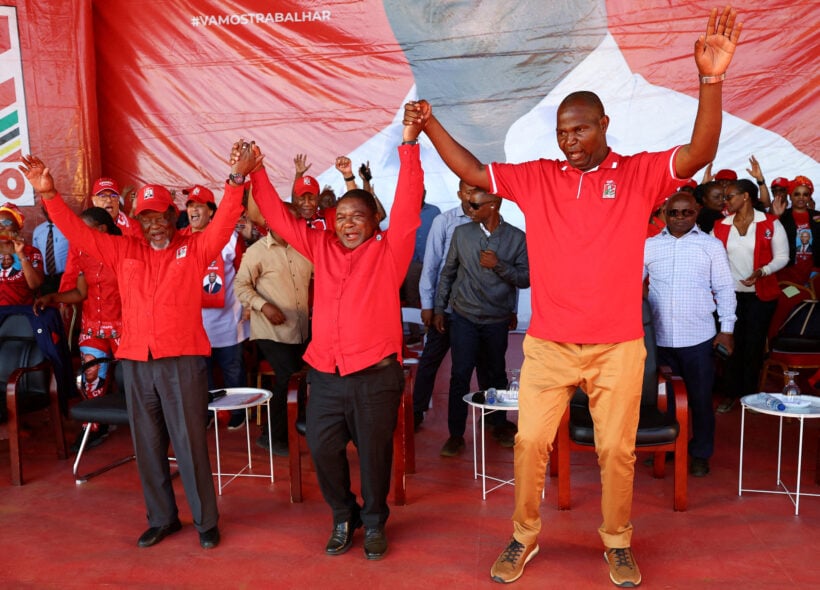
JOHANNESBURG, Oct 8 (Reuters) – Whoever wins Mozambique’s presidential election on Wednesday will face an economy battered by worsening cyclones, insecurity, delays to planned gas projects and high levels of debt.
Ruling party candidate Daniel Chapo is the frontrunner though there are three other candidates vying to replace Felipe Nyusi as president of the southeast African nation.
Rising borrowing costs are putting pressure on Mozambique to embrace fiscal discipline, particularly as delayed gas revenues mean it is running out of options to refinance its debt – which is nearly as big as its annual GDP.
“Debt in the country is rocketing,” Gabriel Muthisse, a former transport and communications minister, told Reuters. “Debt servicing is (diverting)…resources that could be used to finance the real economy.”
The yield on Mozambique’s international bond due 2031 stands at close to 13%.
The country of 34 million people is still trying to shake off a decade-old “tuna bonds” scandal involving Credit Suisse, in which loans for a fishing fleet went missing, leading Mozambique to default on its debt and the International Monetary Fund to suspend lending.
Last year, the Swiss bank settled out of court.
“Financing options for the deficit are limited,” said Kevin Daly, portfolio manager at Abrdn, which holds Mozambique’s 2031 international bond.
Mozambique struck a $456 million deal with the IMF in May 2022, but its programme expires next year and will have to be renegotiated.
“The future of the economy is really based on the development of these oil and gas…(fields),” said Thys Louw, portfolio manager at global asset manager, Ninety One. Yet Islamist violence has delayed TotalEnergies and ExxonMobil’s development of some of Africa’s biggest gas fields.
Total says it is still committed to them, but investor enthusiasm is waning.
“There was a time where everyone was excited and waiting to go into Mozambique,” said Tshepo Ncube, head of International Coverage at Absa Corporate and Investment Bank.
“Now it is all about: ‘let’s see how it plays out’.”
(Reporting by Kopano Gumbi in Johannesburg and Duncan Miriri in Nairobi; Additional reporting by Libby George and Karin Strohecker in London; Editing by Tim Cocks and Christina Fincher)

